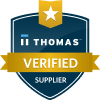Colloidal Silica vs. Fumed Silica
Applied Material Solutions offers a variety of industrial chemical products. In addition to colloidal silica, we provide a selection of antifoams and defoamers, hydrophobic treated […]
Private Label Capabilities
When you’re looking to add a new product offering under your brand, there are several logistical considerations to make on how to bring it to […]


